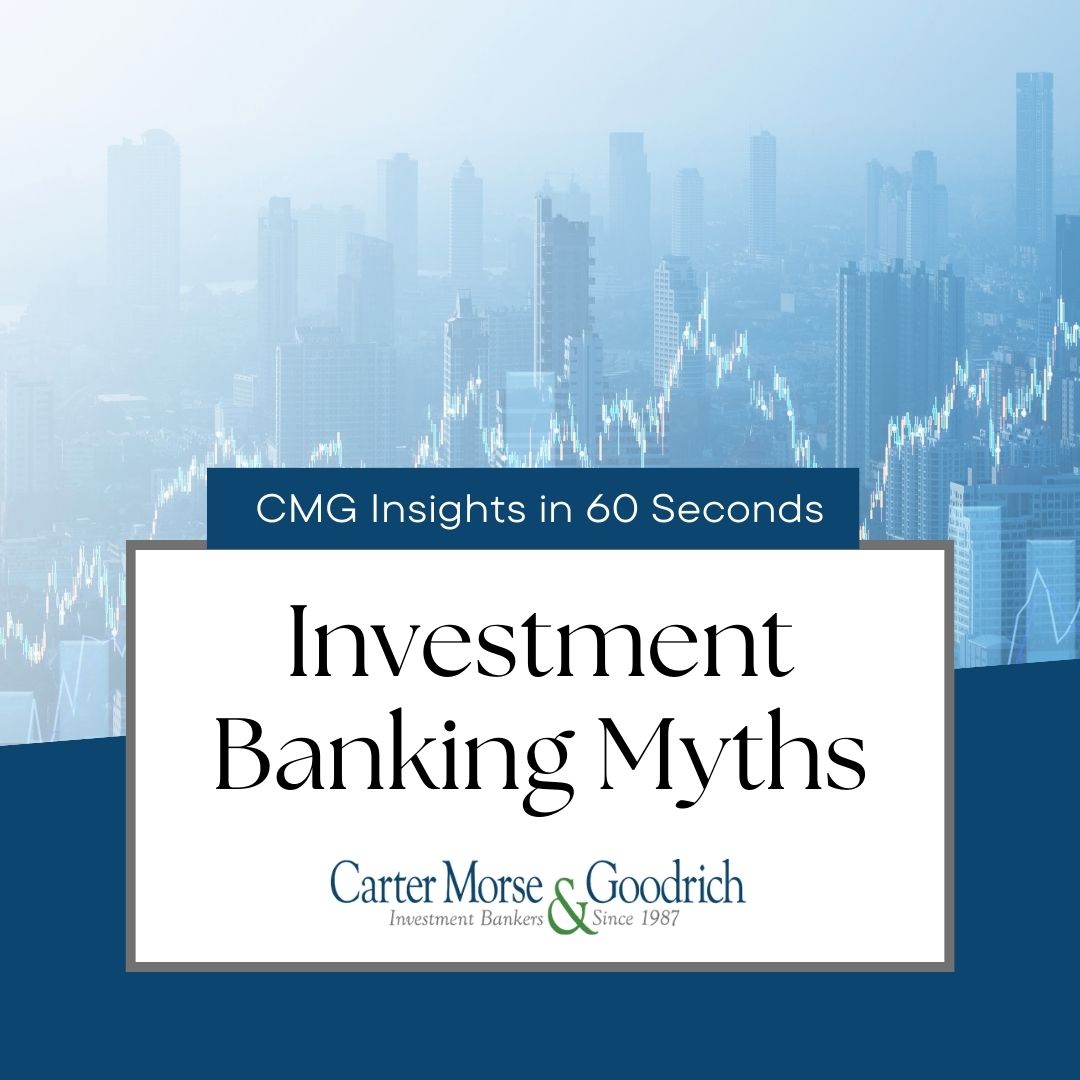Hiring the right investment bank is critical to the success of your transaction. The right one should prepare the owners and management team, and design a process that maximizes value, ensures business operations remain fully functional and helps owners meet their objectives.
I need an industry expert
For certain market segments (such as software, healthcare, FinTech) where regulations and technology can change rapidly, perhaps. However, for most multi-generational family businesses, a dedicated industry expertise is not necessarily needed. Most middle market companies are leaders in their niche market, so broad M&A experience can prove to be even more important and can be a catalyst for innovative strategies and unlocking unique value creation opportunities.
I need someone who knows the buyer
Good deals will always find their way to the right buyers. Over 36 years and hundreds of engagements, we have never had an issue reaching a buyer, regardless of size. A close relationship with any one buyer could actually be a conflict – could there be an alternative motive for the banker who often sells to the same buyers? Has that bank ever been or is looking to be hired by the buyer? If so, do you think they will negotiate hard and push your transaction to the limit or will they be more concerned about maintaining a good relationship with the buyer?
I need to work with a big bank
Big banks have size and scope, but in the end, it comes down to the team that works on your transaction on a day-to-day basis. Focus on those banking teams that truly understand your circumstances and your objectives, and then leads with the best strategic advice to achieve the desired outcome (including potentially recommending not to sell the business at this time).
Speed to market is important
The best results stem from thorough planning and a disciplined process. Shortcutting a disciplined process can compromise value and getting a transaction done. Your banker should operate with a sense of urgency, but should not sacrifice a meaningful step in preparation to get to the most successful outcome. Those bankers that focus on speed over outcome should not be considered.
I should hire the banker with the highest estimated value
Beware of inflated valuations provided by the investment banker to win the mandate. Seek an advisor that will give you a ‘real’ assessment of the strengths, weaknesses and opportunities for the company through the eyes of both strategic buyers as well as private equity investors and one that manages to realistic expectations. Ask for an assessment of your company relative to the “comparable” M&A transactions the banker will show you. It will only be disappointing if the total value is materially less than the investment banker’s initial inflated value.
I should hire the brand name bank that does larger deals
Choose an advisor whose experience aligns with the valuation and complexity of your transaction. Do you want to be the smallest (or largest) transaction taken by an Investment bank? Determine whether your transaction will be staffed with the A or B team a the bank. Focus on the team that will manage the day to day transaction process from start to finish and make sure they bring your specific market experience.
A banker’s M&A volume is a sign of success
There is a huge difference between a ‘broker’ that processes a bunch of deals in a cookie cutter manner and an ‘advisor’ that dedicates the time to get a few transactions done well. From our experience, a good team should handle only two or three transactions at a time. If your M&A team is managing more than this, they cannot dedicate the time or resources to manage all the M&A details and execute a disciplined detailed process that really drives value.
I should hire the bank with the lowest fees
Hiring great investment bankers is an investment in your success and, as the saying goes, you get what you pay for. Fees for mid-market deals are typically a percentage (1.5% to 5.0%) of the overall value of the transaction, but a good banker can dramatically improve the outcome. Good ones should be able to explain their value and ROI with real data and examples.
Selling a family business is the same as other private transactions
Plenty of bankers claim that all private companies are the same (as opposed to public companies and Private Equity backed companies). While the process is similar, managing a process for a private equity backed portfolio company, that has been preparing for years for the eventual sale, is completely different than working with a first-time seller of a family business. Furthermore, PE objectives are clear (maximize price, as quickly as possible) where as family businesses tend to have more diverse definitions of value (family legacy, management role post-closing, certainly of closing, rollover equity, etc).
Not all bankers are the same. Trust and compatibility in terms of communication styles, values, and overall approach to the deal are important factors for a successful partnership. When choosing an investment banking advisor, prioritize those who offer unbiased advice, take the time to thoroughly understand your business, and bring relevant M&A experience to the table. Seek out advisors who appreciate the nuances of your family business and are committed to crafting a strategy that respects your legacy while maximizing value. Ask pointed questions about their approach, past successes, and how they’ve navigated challenges in similar transactions. The right advisor will not only have the answers but will also demonstrate a genuine interest in making your goals their priority.

